Double Spaced Essays Demystified: Your Ultimate Guide to Perfect Formatting!
When it comes to academic writing, formatting can often feel like a daunting task. Among the various formatting styles, double spacing is one of the most common requirements for essays, research papers, and other academic documents. But what exactly does double spacing mean, and how can you ensure your essays are perfectly formatted? In this comprehensive guide, we will explore everything you need to know about double spaced essays, including the reasons for double spacing, how to format your document correctly, and tips for maintaining consistency throughout your writing.

What is Double Spacing?
Double spacing refers to the amount of space between lines of text in a document. When a document is double spaced, there is a full blank line between each line of text. This formatting style is commonly used in academic writing for several reasons:
- Readability: Double spacing makes text easier to read, allowing readers to follow along without straining their eyes. The increased space between lines helps to prevent the reader from losing their place, especially in lengthy documents. This is particularly beneficial for individuals with visual impairments or reading difficulties, as the extra space can help to reduce visual clutter and enhance focus.
- Commentary: Instructors often require double spacing to provide ample space for comments and feedback directly on the paper. This is especially important in educational settings where constructive criticism is essential for student growth. The additional space allows teachers to write detailed notes, suggestions, and corrections without crowding the text, making it easier for students to understand and implement the feedback provided.
- Standardization: Many academic institutions have adopted double spacing as a standard practice, ensuring uniformity across submissions. This consistency helps to create a level playing field for all students, as everyone is expected to adhere to the same formatting guidelines. Standardization also simplifies the review process for educators, as they can quickly assess multiple papers that follow the same layout, making it easier to evaluate content and structure.
Historical Context of Double Spacing
The practice of double spacing has its roots in the typewriter era, where the physical limitations of typewriters necessitated the use of double spacing for clarity. Typewriters produced characters that were often tightly packed, making it difficult to read dense blocks of text. By introducing double spacing, writers could ensure that their work was legible and aesthetically pleasing. As technology evolved and word processing software became prevalent, the tradition of double spacing continued, particularly in academic and professional settings.
Technical Implementation of Double Spacing
Implementing double spacing in a document is a straightforward process, typically achieved through the formatting options available in word processing software such as Microsoft Word, Google Docs, or LaTeX. In most applications, users can select the text they wish to format and then choose the double spacing option from the paragraph settings. This feature allows for quick adjustments, ensuring that documents meet the required specifications for submission. Additionally, users can customize line spacing further, opting for 1.5 spacing or even triple spacing, depending on their needs and preferences.
Double Spacing in Different Contexts
While double spacing is predominantly associated with academic writing, it is also utilized in various other contexts. For instance, legal documents often require double spacing to ensure clarity and readability, as these documents can be lengthy and complex. Similarly, manuscripts submitted for publication in literary journals may also follow double spacing guidelines to facilitate the editing process. In creative writing workshops, double spacing is often encouraged to allow for peer feedback and annotations, fostering a collaborative environment for writers to improve their craft.
In conclusion, double spacing serves multiple purposes in written communication, particularly in academic and professional contexts. Its benefits in enhancing readability, facilitating commentary, and promoting standardization make it an essential formatting choice. Understanding the importance of double spacing not only aids in producing clear and effective documents but also prepares individuals for the expectations they will encounter in various writing scenarios throughout their academic and professional careers.
Why is Double Spacing Important?
Understanding the importance of double spacing can help you appreciate why it is a requirement in many academic settings. Here are some key reasons:
1. Enhances Clarity
Double spacing enhances the clarity of your writing. It allows readers to easily distinguish between lines, making it simpler to follow your argument or narrative. This is particularly important in longer essays where complex ideas are presented. When text is double spaced, it reduces the visual clutter that can occur with single spacing, allowing the reader's eyes to move smoothly from one line to the next. This is especially beneficial for readers who may struggle with reading comprehension or for those who are reviewing dense academic material. Furthermore, double spacing can help highlight the structure of your writing, making it easier for readers to identify paragraphs, sections, and transitions between ideas. Overall, the increased readability afforded by double spacing can lead to a more engaging and effective communication of your thoughts.
2. Facilitates Feedback
Instructors often provide feedback directly on student papers. Double spacing provides enough room for comments, corrections, and suggestions, making it easier for students to understand areas for improvement. When educators annotate a paper, they can write their observations in the margins or between lines without crowding the text. This space allows for clearer communication of feedback, which can be crucial for a student's learning process. Moreover, when students receive their papers back, the ability to see comments alongside the relevant text helps them to make direct connections between their writing and the feedback provided. This can enhance the learning experience, as students can better understand their mistakes and how to correct them in future assignments. Additionally, the presence of ample space for feedback can encourage a more interactive dialogue between students and instructors, fostering a collaborative learning environment.
3. Promotes Professionalism
Submitting a well-formatted essay reflects professionalism and attention to detail. It shows that you respect the guidelines provided by your instructor or institution, which can positively impact your grades. Adhering to formatting requirements, such as double spacing, demonstrates that you are capable of following instructions and valuing the standards set by academic institutions. This is particularly important in higher education, where professionalism can influence perceptions of your work ethic and commitment to your studies. Furthermore, a well-organized and neatly presented paper can leave a lasting impression on your readers, potentially influencing their evaluation of your overall argument and the quality of your research. In many professional fields, the ability to present information clearly and effectively is a critical skill, and mastering formatting conventions like double spacing can serve as a foundational step in developing this skill set.
4. Aids in Editing and Revision
Double spacing not only benefits the reader but also serves as a valuable tool for writers during the editing and revision process. When a document is double spaced, it is easier for writers to spot errors, inconsistencies, and awkward phrasing. The extra space allows for a more thorough review of each line, enabling writers to assess their work critically. This can lead to improved clarity and coherence in the final draft. Additionally, when writers are able to see their work in a more spacious format, they may find it easier to reorganize paragraphs or sections, facilitating a more logical flow of ideas. This is particularly useful when working on drafts that require significant revisions, as the added space can help writers visualize how changes will affect the overall structure of their essay. Ultimately, double spacing can contribute to a more polished and refined final product.
5. Accessibility Considerations
In today's diverse academic landscape, accessibility is a crucial consideration. Double spacing can significantly enhance the accessibility of written materials for individuals with visual impairments or learning disabilities. The increased space between lines can make text easier to read for those who may struggle with dense blocks of text. Furthermore, double spacing can accommodate various assistive technologies, such as screen readers, which may interpret text more effectively when it is formatted in a clear and organized manner. By adhering to double spacing guidelines, writers can contribute to a more inclusive academic environment that supports the needs of all learners. This commitment to accessibility not only benefits individual readers but also fosters a culture of understanding and respect within educational institutions.
How to Format Your Essay in Double Spacing
Now that we understand the significance of double spacing, let’s delve into the practical steps for formatting your essay correctly. The process may vary slightly depending on the word processing software you are using, but the general principles remain the same. Double spacing not only enhances readability but also provides space for comments and corrections, making it a preferred choice in academic settings. Below, we will explore how to achieve this formatting in various popular word processing applications.
Formatting in Microsoft Word
- Open your document: Launch Microsoft Word and open the document you wish to format. If you are starting a new document, you can select File > New to create a blank document.
- Select the text: Highlight the entire text of your essay. You can do this by pressing Ctrl + A (Windows) or Command + A (Mac). This action ensures that all text is included in the formatting change.
- Access the Paragraph settings: Right-click on the highlighted text and select Paragraph from the context menu. Alternatively, you can access this by navigating to the Home tab on the ribbon and clicking on the small arrow in the bottom right corner of the Paragraph group.
- Set line spacing: In the Paragraph dialog box, locate the Line spacing dropdown menu. Select Double from the options. This setting will ensure that there is a full blank line between each line of text, enhancing clarity and organization.
- Adjust spacing before and after: Ensure that both the Before and After spacing are set to 0 pt to avoid additional space between paragraphs. This is crucial for maintaining a clean and professional appearance in your essay.
- Click OK: Once you have made your selections, click OK to apply the changes. You should immediately see the effect of double spacing throughout your document.
Formatting in Google Docs
- Open your document: Go to Google Docs and open the document you want to format. If you don’t have a document yet, you can create a new one by clicking on the Blank option or selecting a template.
- Select the text: Highlight the text you wish to double space, or press Ctrl + A (Windows) or Command + A (Mac) to select all. This ensures that every part of your essay is formatted uniformly.
- Access the line spacing options: Click on the Line spacing icon in the toolbar (it looks like an up and down arrow with lines) or go to Format in the menu bar and select Line spacing . This will open a dropdown menu with various spacing options.
- Select double spacing: From the dropdown menu, choose Double . This action will instantly adjust the spacing in your document, providing a clear and organized layout that is easy to read.
Formatting in Other Word Processors
If you are using a different word processor, the steps may vary, but the general process will be similar. Look for options related to paragraph formatting or line spacing in the menu or toolbar. Common word processors like LibreOffice Writer, Apple Pages, or OpenOffice also provide similar functionalities. Here are some general tips:
- Explore the menus: Most word processors have a Format menu where you can find paragraph settings. Look for options labeled Line Spacing or Paragraph .
- Use keyboard shortcuts: Familiarize yourself with keyboard shortcuts specific to your software to streamline the formatting process. For instance, many programs allow you to quickly access paragraph settings using a combination of keys.
- Check for templates: Some word processors offer pre-designed templates that may already have double spacing applied. Utilizing these can save time and ensure consistency in formatting.
Always ensure that you select double spacing and adjust any additional spacing settings as needed. Remember, the goal is to create a document that is not only visually appealing but also easy to read and navigate. Proper formatting reflects professionalism and attention to detail, which are essential in academic writing.
Additional Formatting Guidelines
In addition to double spacing, there are several other formatting guidelines you should follow to ensure your essay meets academic standards. Adhering to these guidelines not only enhances the readability of your work but also demonstrates your attention to detail and respect for academic conventions. Below are some essential formatting elements to consider when preparing your essay.
1. Font and Size
Most academic institutions recommend using a standard font such as Times New Roman or Arial in size 12 pt . This ensures readability and professionalism. The choice of font can significantly affect how your essay is perceived; a clean, classic font like Times New Roman is often favored for its traditional appearance, while Arial offers a more modern look. Regardless of your choice, consistency is key—ensure that the same font and size are used throughout the entire document, including headings and subheadings. Avoid using decorative or overly stylized fonts, as they can distract from the content of your essay.
Set your document margins to 1 inch on all sides. This is a common requirement for academic essays and provides a clean look. Proper margins not only frame your text but also ensure that your work is easily readable and that no content is lost when printed or bound. In addition to the standard 1-inch margins, be mindful of any specific guidelines provided by your instructor or institution, as some may require different margin settings. Always check your document settings before finalizing your essay to ensure compliance with these requirements.
3. Page Numbers
Include page numbers in the header or footer of your document. Typically, page numbers are placed in the upper right corner of each page. This practice helps to keep your work organized and allows readers to easily navigate through your essay. When inserting page numbers, ensure that they are formatted consistently throughout the document. If your essay includes a title page, the numbering usually starts on the first page of the actual content, with the title page being numbered as "i" (if using Roman numerals) or left unnumbered, depending on the specific guidelines you are following. Always double-check that the page numbers are sequential and correctly aligned.
4. Title Page
If your assignment requires a title page, make sure to include the title of your essay, your name, the course name, your instructor’s name, and the date. Center this information on the page and use double spacing. The title should be concise yet descriptive, giving readers a clear idea of the essay's focus. Additionally, ensure that the title is formatted in a way that distinguishes it from the rest of the text, often by using bold or larger font size. The title page serves as the first impression of your work, so take care to present it neatly and professionally. If your institution has specific formatting requirements for the title page, such as including a running head or specific font styles, be sure to adhere to those as well.
5. Indentation
Indent the first line of each paragraph by 0.5 inches . This can usually be done by pressing the Tab key at the beginning of each paragraph. Indentation helps to visually separate paragraphs, making it easier for readers to follow your argument or narrative. Consistent indentation throughout your essay is crucial; avoid using extra spacing between paragraphs unless specified by your instructor. If you are using word processing software, you can set the default indentation for paragraphs in the formatting settings, which can save time and ensure uniformity across your document. Additionally, be cautious not to confuse indentation with line spacing; they serve different purposes in formatting your essay.
Common Mistakes to Avoid
Even with clear guidelines, it’s easy to make formatting mistakes. Here are some common pitfalls to watch out for:
1. Inconsistent Spacing
Ensure that your entire document is consistently double spaced. Sometimes, sections may inadvertently revert to single spacing, especially after copying and pasting text. This can create an unprofessional appearance and may lead to confusion for the reader. To avoid this, it’s advisable to use the formatting tools in your word processor to set the spacing before you begin writing. Additionally, after completing your document, use the 'Show/Hide' feature to visualize any hidden formatting marks, which can help you identify and correct any inconsistencies in spacing throughout the document.
2. Incorrect Margins
Double-check your margins to ensure they are set to 1 inch on all sides. Incorrect margins can affect the overall appearance of your essay and may even lead to issues with submission if your instructor has strict formatting requirements. To verify your margins, navigate to the page layout settings in your word processor. It’s also a good practice to print a test page to see how your document looks on paper, as this can reveal any margin issues that may not be obvious on screen. Remember, margins are not just about aesthetics; they also provide space for comments or corrections if your essay is being reviewed by an instructor.
3. Ignoring Guidelines
Always refer to your instructor’s guidelines. Some may have specific requirements regarding formatting that differ from standard practices. This could include unique font styles, sizes, or even specific citation formats that must be adhered to. Failing to follow these guidelines can result in lost points or a lower grade. To ensure compliance, consider creating a checklist based on the guidelines provided. This checklist can include items such as font type, font size, line spacing, margin settings, and citation style. Additionally, if any guidelines are unclear, don’t hesitate to reach out to your instructor for clarification. It’s better to ask questions upfront than to make assumptions that could lead to mistakes.
4. Neglecting Page Numbers
Page numbers are an essential aspect of essay formatting that are often overlooked. Ensure that your page numbers are included and correctly formatted, typically in the upper right corner of each page. This not only helps in organizing your work but also makes it easier for readers to navigate through your essay. If your essay is lengthy, consider including your last name before the page number, as this can help in identifying your work in case it gets separated from other documents. Additionally, check if your instructor has specific instructions regarding the placement and format of page numbers, as some may prefer them to be centered or in a different location.
5. Failing to Proofread
Proofreading is a critical step that should never be skipped. Even if your formatting appears correct, grammatical errors, typos, and awkward phrasing can detract from the quality of your essay. Take the time to read through your work multiple times, and consider reading it aloud to catch mistakes that you might miss when reading silently. It can also be beneficial to have a peer review your essay, as a fresh set of eyes can often spot errors that you may have overlooked. Additionally, utilizing grammar and spell-check tools can assist in identifying common mistakes, but they should not be solely relied upon, as they may not catch every error.
6. Overlooking Citation Style
Different academic disciplines often require specific citation styles, such as APA, MLA, or Chicago. Failing to adhere to the required citation style can lead to accusations of plagiarism and can significantly impact your grade. Make sure to familiarize yourself with the specific rules of the citation style you are using, including how to format in-text citations, reference lists, and bibliographies. It’s also wise to use citation management tools or online resources that can help you format your citations correctly. Always double-check your citations against the latest guidelines, as citation rules can change over time.
7. Not Utilizing Headings and Subheadings
Proper use of headings and subheadings can greatly enhance the readability of your essay. They help to organize your content and guide the reader through your arguments or points. When using headings, ensure they are formatted consistently throughout your document, following the hierarchy of your content. For instance, main headings should be bold and larger than subheadings, which may be italicized or in a smaller font size. This not only improves the visual appeal of your essay but also aids in the logical flow of information, making it easier for readers to follow your line of reasoning.
By being mindful of these common mistakes and taking the necessary steps to avoid them, you can enhance the quality of your essay and present your ideas in a clear, professional manner. Remember, attention to detail in formatting can significantly impact the overall impression your work leaves on your readers.
Tips for Maintaining Consistency
Maintaining consistency in your formatting is crucial for a polished final product. Consistent formatting not only enhances the readability of your document but also reflects professionalism and attention to detail. Here are some tips to help you stay on track:
1. Use Styles
Most word processors, such as Microsoft Word and Google Docs, allow you to create and apply styles for headings, paragraphs, and other text elements. Using styles can help ensure uniformity throughout your document. By defining styles for different levels of headings (e.g., Heading 1 for main titles, Heading 2 for subheadings), you can maintain a clear hierarchy in your text. Additionally, styles can be modified globally; if you decide to change the font or color of your headings, you can do so in one place, and all instances of that style will update automatically. This not only saves time but also minimizes the risk of overlooking inconsistencies.
2. Review Before Submission
Before submitting your essay, take the time to review the entire document for formatting consistency. Look for any discrepancies in spacing, font, or indentation. Pay special attention to the alignment of text, as inconsistent alignment can distract readers and detract from the overall professionalism of your work. It’s also beneficial to read your document aloud or use the "Read Aloud" feature in your word processor to catch any awkward phrasing or formatting issues that may have been overlooked during the writing process. Consider using the "Find" function to locate specific formatting elements, such as different font sizes or styles, to ensure that everything matches your intended design.
3. Utilize Templates
If you frequently write essays, consider creating a template with your preferred formatting settings. This can save time and ensure consistency across multiple documents. A well-designed template can include pre-set margins, font styles, line spacing, and even a table of contents if necessary. By starting with a template, you eliminate the need to repeatedly adjust formatting settings for each new document, allowing you to focus more on content creation. Additionally, many educational institutions provide templates that adhere to specific formatting guidelines (such as APA, MLA, or Chicago style), which can be incredibly helpful in ensuring that your work meets the required standards. Remember to save your template in an easily accessible location, so you can quickly retrieve it whenever you need to write a new essay.
4. Keep a Formatting Checklist
Creating a formatting checklist can be an effective way to ensure that you maintain consistency throughout your document. This checklist can include items such as font type and size, line spacing, margin settings, and citation style. By having a physical or digital checklist to refer to, you can systematically go through each element of your document before finalizing it. This method not only helps in identifying inconsistencies but also serves as a reminder to adhere to specific guidelines, especially if you are working under strict formatting requirements. Additionally, you can update your checklist as you learn new formatting techniques or as guidelines change, ensuring that it remains a relevant tool for your writing process.
5. Seek Feedback
Sometimes, it can be challenging to spot inconsistencies in your own work. Seeking feedback from peers, instructors, or writing centers can provide a fresh perspective on your document's formatting. Others may notice discrepancies that you might have overlooked, such as inconsistent use of bullet points or variations in heading styles. Constructive criticism can also help you understand how your formatting choices impact the overall readability and presentation of your essay. When receiving feedback, be open to suggestions and willing to make adjustments to improve the clarity and professionalism of your work.
6. Practice Regularly
Consistency in formatting is a skill that improves with practice. The more you write and format documents, the more intuitive it will become to maintain uniformity. Regularly engaging in writing exercises, whether for academic purposes or personal projects, can help reinforce good formatting habits. Additionally, consider reviewing your past essays to identify areas where you may have struggled with consistency. Learning from previous experiences can guide you in developing a more systematic approach to formatting in future writing endeavors.
By implementing these tips, you can enhance the consistency of your formatting, resulting in a more polished and professional final product. Remember that attention to detail in formatting is just as important as the content of your writing, as it contributes significantly to the overall impression your work leaves on readers.
Double spaced essays are a fundamental aspect of academic writing that enhances readability and facilitates feedback. The practice of double spacing not only makes the text easier to read but also provides ample space for instructors and peers to annotate and comment on your work. This is particularly important in academic settings where constructive criticism plays a crucial role in the learning process. By understanding the importance of double spacing and following the formatting guidelines outlined in this guide, you can ensure that your essays meet academic standards and reflect professionalism.
The Importance of Double Spacing
Double spacing is more than just a formatting choice; it serves several practical purposes in academic writing. First and foremost, it improves the overall readability of the text. When essays are double spaced, the white space between lines allows readers to navigate the content more easily, reducing eye strain and enhancing comprehension. This is especially beneficial for lengthy essays or those that contain complex arguments, as it allows readers to pause and reflect on the material without feeling overwhelmed.
Moreover, double spacing is a standard requirement in many academic institutions, particularly in higher education. Adhering to this guideline demonstrates your ability to follow instructions and respect the conventions of academic writing. It signals to your instructors that you take your work seriously and are committed to presenting it in a professional manner. This attention to detail can positively influence their perception of your overall effort and dedication to your studies.
Formatting Guidelines
To ensure that your essays are properly formatted, it is essential to follow specific guidelines beyond just double spacing. Pay attention to the font type and size, as these elements contribute significantly to the overall presentation of your work. Commonly accepted fonts include Times New Roman, Arial, and Calibri, typically in a size of 12 points. Consistency in font choice throughout your essay is crucial, as it maintains a uniform appearance and enhances readability.
Margins are another critical aspect of formatting. Standard margins are usually set to one inch on all sides of the document. This not only provides a clean and professional look but also ensures that your text does not extend too close to the edges of the page, which can be distracting for readers. Additionally, proper indentation of paragraphs is important; typically, the first line of each paragraph should be indented by half an inch. This visual cue helps to distinguish between different sections of your essay, guiding the reader through your arguments and ideas.
Avoiding Common Mistakes
While formatting may seem straightforward, there are several common mistakes that writers often make when preparing double spaced essays. One frequent error is inconsistent spacing between paragraphs. It is essential to maintain uniform spacing throughout your essay, ensuring that there is no extra space before or after paragraphs unless specified by your instructor. This consistency contributes to a polished and professional appearance.
Another common pitfall is neglecting to proofread your work for formatting errors. Before submitting your essay, take the time to review it carefully, checking for any discrepancies in spacing, font, or indentation. Utilizing tools such as spell check and grammar check can also help identify potential issues, but a thorough manual review is crucial for catching formatting mistakes that automated tools may overlook.
Mastering the Art of Double Spaced Essays
With these tips and techniques, you are well on your way to mastering the art of double spaced essays! The ability to present your ideas clearly and professionally is a valuable skill that will serve you well throughout your academic career and beyond. As you continue to practice and refine your writing, remember that each essay is an opportunity to improve not only your writing skills but also your critical thinking and analytical abilities.
In conclusion, embracing the conventions of double spaced essays is an essential step in your academic journey. By prioritizing readability, adhering to formatting guidelines, and avoiding common mistakes, you will enhance the quality of your writing and make a positive impression on your readers. As you embark on your next writing project, keep these principles in mind, and you will undoubtedly produce essays that are not only well-structured but also engaging and impactful.
Happy writing!
Transform Your Writing Experience with EssayGenius!
Are you struggling with formatting your double spaced essays or facing writer's block? EssayGenius is here to help! Our AI-powered essay writing tool simplifies the writing process, allowing you to generate sophisticated essay drafts in under 60 seconds. Just provide your essay details, and let our advanced AI models do the heavy lifting.
With features like customizable drafts, editing tools, and support for various citation styles, EssayGenius ensures your essays not only meet academic standards but also reflect your unique voice. Plus, you can easily format your essays to be double spaced, enhancing readability and professionalism.
Don't let formatting challenges hold you back! Start using EssayGenius today and take your writing to the next level!

How to Write a Double-Spaced Essay and Score an A for it
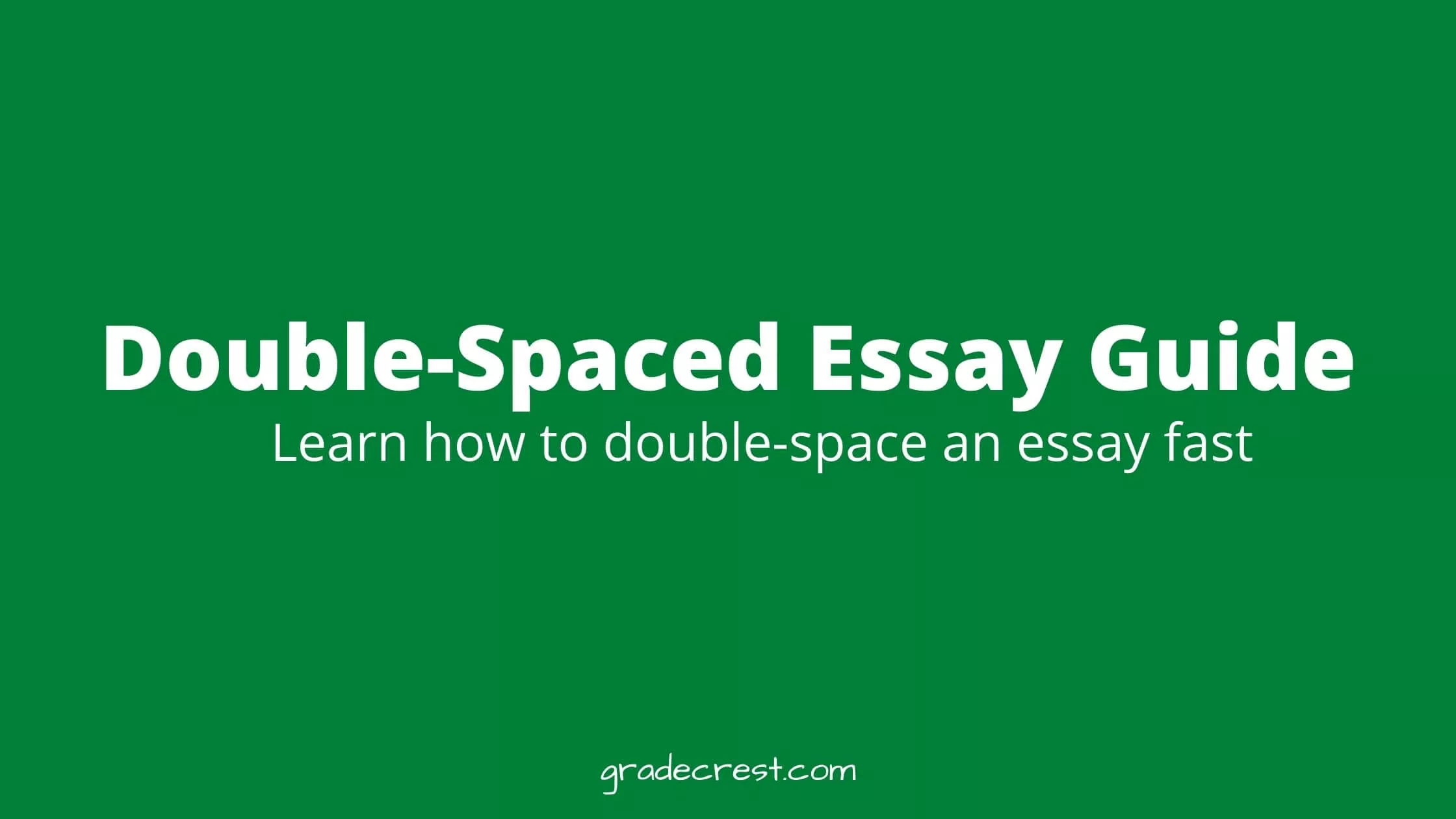
Many guidelines for formatting essays, as presented in rubrics, recommend double-spacing as one of the proper formats for standard comprehensive essays . For instance, when you receive the assignment instructions, essay prompts, or other academic homework assignment instructions, the Spacing of the work is usually specified.
The common spacing specifications include a 1.5 spaced essay, single-spaced essay, and a double-spaced or 2.0 spaced essay. In most cases, instructors will insist that your essay must be typed and double-spaced on standard-sized 8.5" by 11" paper, with margins of 1" on all sides.
In this detailed guide, we focus on the definition of a double-spaced essay, how to double-space an essay on MS Word or Mac Pages, and how to spice up that essay so that you score higher marks.
What is a double-spaced essay?
Here is the meaning of a double-spaced essay : A double-spaced essay is a standard essay written on a standard-sized (8.5" x 11") paper with a one-inch margin around the paper formatted with double spaces between the lines that make a paragraph with no extra spacing between paragraphs.
In terms of word count, a double-spaced essay contains either 275 or 300 words in total per page, depending on the font used. Formatting a paper in double-spacing makes it easier for the tutor to read through the essay, make corrections within the left spaces, and follow through with ideas in your essay.
The number of words in a double-spacing essay also depends on the page margins you have set for your text. For instance, if you use A-4 sized page, an essay will have fewer words, the same as an A3 page. However, a standard-sized age with one-inch margins all around should have 275 words as a standard.
With short essays being between 250 words and 1000 words, with the most common in college being a 500-word essay, you can write as many words as you wish depending on the scope of the question, essay prompt, and the topic.
In most instances, students are advised to use font 12 points of 11 depending on the font type you are using. Failure to format your essay in the required Spacing might lead to penalties ranging from deduction of grades to poor grades.
As you set out to write or edit your essay, ensure that you choose a font that your professor advises. But this should only be the last thing you do as you polish your essay. For instance, some students find it comfortable writing with a given font, say Arial font 13, and then converting to Times New Roman font 12 when editing.

What is the significance of Double Spacing in essays and assignments?
You are probably wondering why we double-space essays or why it is the preferred standard for essays you write in high school and college. Below are some of the top three reasons why teachers want essays to be double-spaced.
- Double-spacing makes it easier to read through the document quickly as the lines do not blur together.
- Double-spaced essays are also reader-friendly. A reader can easily read and trace the points in your essay without needing extra aids or larger fonts.
- Double-spaced essays or assignments are also preferred because they leave whitespaces where the instructors can write comments on the paper.
- Another reason is that double-spaced essays give you (the essayist) enough room to communicate to your readers. The Spacing enhances the spatial mode of the essay or paper, making it easier to spot main points, read without getting lost or straying into other lines, and use one's fingers.
Double-Spacing vs. Other tyles of Spacing for Essays
When writing an essay, report, dissertation, annotated bibliography, or research paper for school, you should be aware of the type of Spacing required. There are three types of Spacing for school assignments: single, 1.5, and double Spacing.
A double-spaced paper or document, which is the most common, entails creating 2.0 spaces between lines in a paragraph without spaces between paragraphs. Double-spacing is a norm of most college assignments; even dissertations and theses are mostly double-spaced.
A 1.5 spaced essay or document means that the lines or sentences in a paragraph are spaced 1.5 mm from one another without spaces between paragraphs.
Finally, a single-spaced paper has little white spaces between the typed lines in the paragraphs. The lines within the paragraph are spaced 1.0 from one another. This means that there is little room for comments, remarks, or feedback from the professor. You should only use single and 1.5 spacing if your instructor advises so.
If you have typed your paper and realize that you have the wrong spacing, do not worry. You can do the Spacing of an essay or document either on a word document or on a Mac, as we shall explain shortly. The good news is that you can do this at any point in your writing process. The process will differ depending on the program you are using. Let's explore widely.
If you are wondering what a double-spaced essay looks like, have a look below.
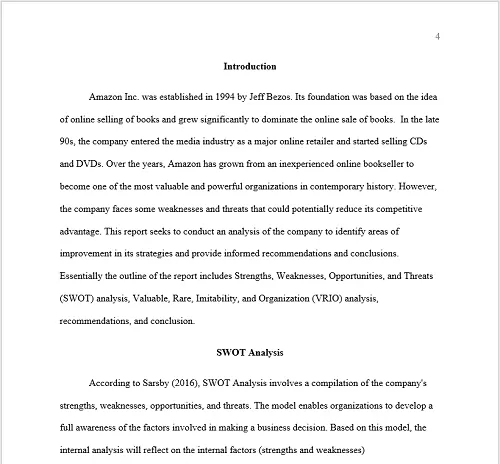
Here is how single Spacing should look like in an essay:
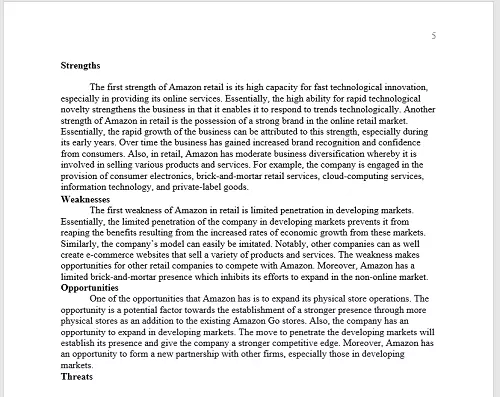
Pages vs. Spacing Chart
To try to bring things to their perspective, here is a table comparing word count to Spacing. It can help you plan your essays.
You can simply conclude from the table abov e that a single-spaced page has the exact word count as twice a double-spaced paper.
How to set Double-Spacing on your Computer
Some people prefer to use other font styles and formats when writing, then edit the entire document to the required format and Spacing later, which is okay. Others like to keep everything organized from the beginning, which means setting double-spacing from the onset. Whether on Mac Page's word processor or MS word processor, here are some steps to take.
Pages on a Mac
If you are using a Page's word processor on a mac, you can follow these steps to double-space your paper:
- Highlight the text that you wish to double-space
- Click on Inspector, a blue button on the top right of your window
- In the new window, select the Text tab or the "T."
- Find the section labeled Spacing and type 2 into the box to the right of the slide bar.
On Microsoft Word Processor
If you are typing your assignment on a word document, follow the following steps to double-space it:
1. Select the text that you wish to change its Spacing
2. Under the Home tab , go to the Paragraph Click on the small arrow in the bottom left corner, as shown below.

3. A new window will pop up with various settings, including general, indentation, and Spacing, as shown in the figure below.
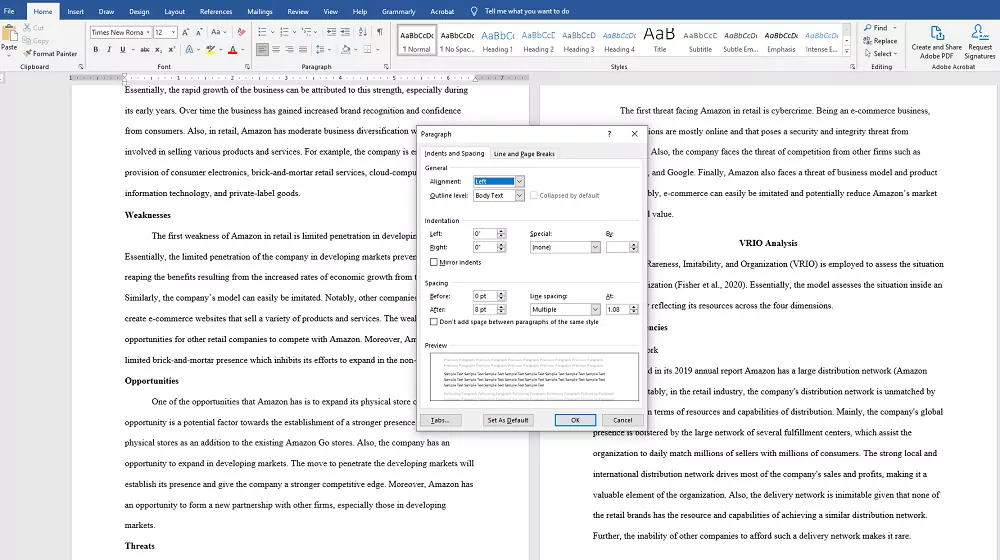
4. Click on the line spacing drop-down arrow
5. Select " Double " from the list
6. Check the " Don't add space between paragraphs of the same style ."
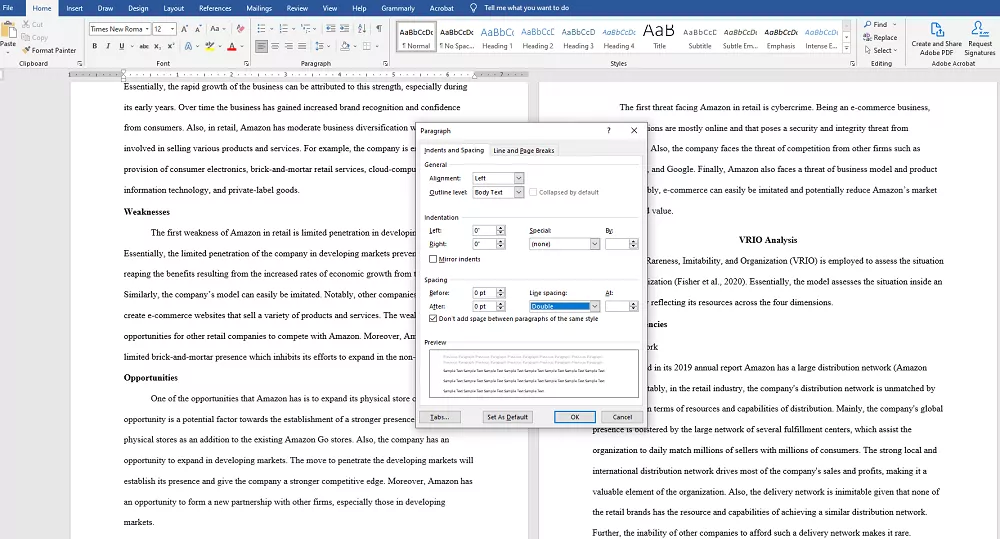
7. Press OK to execute the changes and save
The process is more or less the same for all Microsoft word processing versions.
You can also adjust the line-spacing from the toolbar on your Microsoft word processor . This is probably the best way if you are one of those that want a page with double-spacing from the onset.
1. Under the Paragraph section of the Home Tab , locate the line-spacing button .
2. Click on the button to expand it as shown below.

3. Choose 2 . 0 for double-spacing , 1.5 for 1.5 line-spacing, and 1.0 for single spacing.
4. Click on OK to make the paper double-spaced.
How to Write a Double-Spaced Essay: 9 Steps to Take
Suppose you are assigned to write a double-spacing essay and you are wondering how to proceed, here is a little cheat sheet to keep you going. We asked our top essay writers and here were their exact recommendations; they can help you craft a double-spaced essay or assignment.
1. Read the essay prompt
The first thing you should always do when assigned to write a double-spaced essay is to thoroughly read the assignment prompt. It helps you unpack the question, brainstorm on a good topic, and pick the best topic for your essay. additionally, you also get to understand the Spacing, font type and size, and length/wordcount of your essay. It is an integral step in writing an essay.
2. Select a good essay topic
After reading the instructions, you need to rewrite the question on your own terms, conduct some research, evaluate the viable topics, then choose a hot topic for your essay. depending on your area of study, select a topic that is neither too narrow nor too broad. Go with a topic that is easy to find resources and one that you have genuine interest in writing a paper. If you are left with the option of selecting a topic on your own, select a topic that is relevant to the subject of study.
3. Use appropriate evidence
We cannot insist less how much it is important to cite all the sources that you use in an essay. First, failure to cite sources used in an essay could amount to plagiarism, which is a punishable offense in higher education and even professional realms. Therefore, you need to manage your in-text citations and reference list to ensure that your paper has some scholarly rigor. Citing facts paraphrased, quoted, or summarized from a source bolsters the arguments in the paragraphs of your essay. It brings in a string of a scholarly streak that makes the paper flow, make sense, and support your thesis statement.
4. Present your facts well
When planning for your essay or writing an essay outline/structure, you ought to have thought of the scaffolding of your essay. An essay scaffold refers to the order in which you present your arguments, themes, or texts in an essay. Have some semblance of organization in your essay. As an essayist, ensure that you substantiate your claims using proper evidence.
Instead of casually presenting an idea because you do not believe in it, use the available empirical evidence to make the essay even more desirable. It is also appropriate not to jump into unwarranted or unsupported conclusions.
If you do so, let it be on grounds of the evidence presented to support your thesis statement. Equally, your essay must always address the readers, so focus on what would interest them. From the title to the reference page, ensure that your readers are well-entertained and hooked.
5. Have a good essay structure
Apart from determining the order of argument, ensure that your essay is also well-structured. A comprehensive essay with a definite structure intrigues the readers. It also simplifies the writing process because everything falls into its rightful place.
You will have a laser-sharp focus on a structured essay than an essay you write haphazardly. Such an essay (a poorly-planned essay) will probably miss a thing or two. But when you have an essay outline , your chances of intriguing your readers increased. In short, a well-structured essay is reader-friendly.
Instead of beginning with the introduction, like anyone else, why not begin with the body paragraphs. Because you have a preliminary thesis, your body paragraphs can be developed without the introduction.
You can then finalize the writing process by tweaking the thesis into a final thesis, based on the arguments on the body paragraphs, and then writing a catchy introduction.
When you have your introduction, you can now finalize the writing process by writing an equally catchy conclusion that leaves your readers yearning for more.
As long as you maintain the standard format of a three-paragraph or a five-paragraph essay, whichever order you use to write does not matter provided the quality of the essay is met.
Choose the essay scaffold depending on the type of essay you are writing. For instance, you can use Toulmin, classic argument method, or Rogerian approach when writing an argumentative essay . similarly, you can choose to use chronology or point-by-point contrast when writing a classification or compare and contrast essay .
6. Use simple vocabulary
When writing any essay, it is not the chance to measure who knows what vocabulary. Instead, it is a chance to present facts from research to reinforce your ideas and thoughts on a given topic. Resist the temptation of using tough words to impress your teacher. Simplicity always wins when it comes to essay writing. Write in plain and simple language.
Use the ordinary words that makes it easier for your instructor to read and flow with your ideas. They never have the time to peruse a thesaurus, and even if they do, you would probably irritate their appetite leading to poor grades.
Use simple common words to communicate with the audience. Most engaging and top-grade essays are written in simple language. Students who write simple papers end up scoring better, as long as the facts are presented, flowing, and well organized.
7. Use short and long sentences
Every piece of assignment you write is meant to impress your readers. Using short sentences and long sentences blended together makes an essay readable. Short sentences are brief, easy to understand, and allow for easier navigation.
Although sometimes it is tempting to use complex sentences, they are counted as run-on or ambiguous sentences. When writing, this should not trouble you. However, when editing the paper, shorten the long sentences that have empty but complex vocabularies. It narrows down to simplicity again.
All our writers are better because they have mastered the art of balancing short and long sentences. With such a craft, you can convince even the toughest professor on earth for the best grades.
Brevity, coherence, accuracy, composition, and clarity comes from a mastery of how to use short sentences. So, try to practice often and use this approach for success in your essays.
8. Balance your paragraphs
To achieve a perfect paragraph in an essay is akin to getting an A+. It is not hard although it is something that most people struggle with.
Ensure that your topic sentences achieve cohesion and coherence. Cohesion means a good flow while coherence means achieving a sense of the whole. Your paragraphs should transition into one another.
Each paragraph should present a single idea linked to the order. Check out our guide on the PEEL paragraphing format . We also have a checklist for a good essay paragraph . A paragraph is an indispensable or irreplaceable node within a coherent sequence of logic. They are the building blocks of the essays. So, make them count.
Finally, your paragraphs need to be balanced in terms of number of words. Remember, by default the body paragraphs comprise 80% of the entire word count. This means that if you are writing a five-paragraph essay, the three body paragraphs should be spread to cover for the same.
9. Edit and format correctly
The writing process is no doubt the hardest part. Since it comes with researching, reading, and critical thinking, by the time you are done chances are that you are exhausted and probably fatigued. If you make the mistake of rushing directly to edit and format the paper, you'll probably make mistakes. It is the sole reason why it is good to plan an essay � allocate some good time for editing and polishing the essay or any assignment for that matter.
Now, when you're done with writing, take some much-deserved break. You can go for a walk, have a nap, watch your favorite show, activate your social media and plug back, or visit a friend, whatever will ease your mind.
After the rest, spend some quality time objectively reading, editing, and formatting your essay. focus on spelling, grammar, stylistic, and organization mistakes. You should also check the right Spacing, fonts, and font type. If you find the process consuming and tiresome, you can use our essay editing service. We have keen editors who can always help.
After everything is okay, check your paper for plagiarism, and submit it before the deadline.
Parting Shot!
To this end, you now understand what a double-spaced essay is, how to set double Spacing on your Computer, and how to make a double-spacing interesting enough to earn you a better grade.
Whether you are writing in MLA, Harvard, APA , or Chicago, the process remains the same. If you need tips on how to make an essay longer , check out our guide on the same. We also have various guides that can help you become a better essay writer.
Related: How to indent in an essay or paper.
Otherwise, if all you need is someone who can assist you with writing a well-researched, refined, and polished school essay, we have excellent and talented writers on the wait. Place an order through the form on our homepage and experience a perfect essay help you have never seen before.

Gradecrest is a professional writing service that provides original model papers. We offer personalized services along with research materials for assistance purposes only. All the materials from our website should be used with proper references. See our Terms of Use Page for proper details.

- Have your assignments done by seasoned writers. We work 24/7. Just email us at:
- [email protected]

How to Write a Double-Spaced Essay: Full Guide with Examples
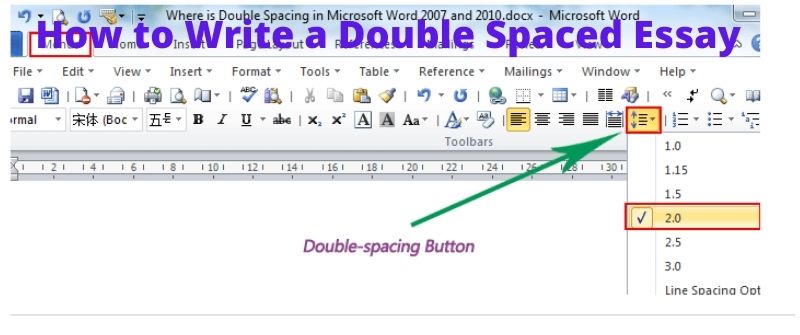
MS word double spacing
Double spacing is an editing method that refers to the space between the lines of your essay. The tutor will ask the student to double-space to add the comments and editing marks.
Double spacing happens to be the norm in essay writing. The student can change the spacing depending on the word processing programs. They could be Microsoft Word or Mac’s Pages word-processing programs.
Need Help with your Homework or Essays?
What is a double spaced essay.
A double-spaced essay is an essay where the author formatted the space between the lines and the paragraphs using double spacing selection. Ideally, a double-spaced essay contains between 275 and 300 words per page depending on the font. The format is common to students and tutors as they use the space to make corrections.

A double-spaced essay can carry 275 words per page.
It all depends on the page margins where you are placing your text.
Suppose your page is of standard size, then the words will increase naturally.
When you are using an A4-sized page, the same essay may contain fewer words.
Notably, the author can write as many words as he or she desires. The only limit could be your ability. The shortest essay could range between 500 and 1000 words. However, any essayist could write thousands of words to expound on the provided topic.
The standard font for a double-spaced essay should be 12. Such empowers the writer to create at least 200 words for each page. When you are writing using this 12-point font, it makes the paragraphs to be understandable.
The college can penalize the student if he fails to stick to the instructions. As such, it is vital to work with 12 points when you are writing an essay.
When you are writing the essay, you can use any font type unless indicated in the instructions. If unsure, then you can select the Home tab as you click on the correct font icon.
Why Double Space?
We do double spacing to meet the requirements of the checker. Again double spacing is necessary to allow the teacher to comment on the feedback while evaluating the essay.
The essay should meet the desires of the reader and not the writer. You can read more about writing good essays in the guide about the contents and the structure.
Difference between Single and Double Spaced Essays
The double-spaced document involves creating additional space between the paragraphs. Such a format will feature two spaces where the writer will have to press the Enter button twice. The added space allows the teacher to make changes and other remarks.
A single-spaced paper is where there is little white space between the paragraphs. For this case, the tutor can also give instructions to students to use that format when writing a particular essay. The author only presses the Enter button once.
How to Write a Double-Spaced Essay
Whether writing a narrative report or an essay for your school, you should select a line for spacing your work. The double spacing design becomes great as it makes it easier for the author to get the flow of the text.
One can double-space the work by making the correct parameters for the selected text or the entire document. Several word processing documents exist to help you double-space your work, as indicated in the following examples.
Double-Spacing in MS Word
Begin by opening the document that you are working with. It could be either a blank document or some needs text in it.
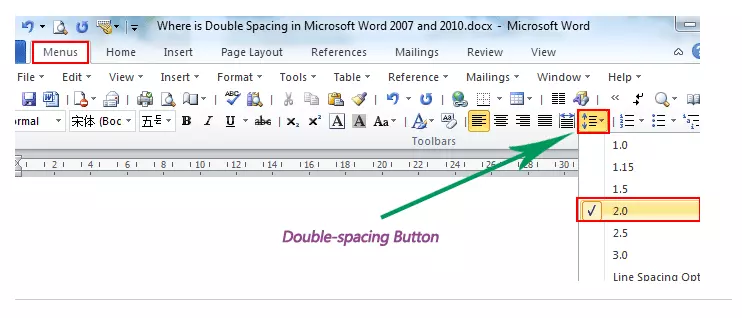
- You can now create a default document to enable the whole document to stay double-spaced by following the simple procedure as
- Locate the toolbar and select the styles.
- Right-click on the Normal on the Home tab
- Click on modify on the pop-up menu.
- Select the Formatting prompt and choose the Double-spaced button.
- Choose OK to activate the Double spacing design.
- Create a space within your document where you desire to double space.
- Highlight the text you desire to double-space.
- Click on Paragraph spacing and Line.
- Choose option 2.0 to double-space the highlighted space.
Get a Brilliant Essay today!
Let our essay writing experts help you get that A in your next essay. Place your order today, and you will enjoy the benefits.
How to Spice up Double-Spacing your essay
One can make the essay remain engaging and interesting by double spacing it. Some of the things that could make it appealing are as follows:
a) Using Short Sentences
The purpose of essay writing is to impress the reader. As the research study indicates, you should use short sentences to make your essay more readable. The reason behind short sentences is that they are easy to understand.
It could be tempting if you settled on using a large and complex vocabulary in your essay construction. In practice, complex sentences make it hard for the reader to enjoy the flow.
The secret is writing short and meaningful sentences and coming up with some charming lines. This is one of the recommended ways to become a better essay writer because you present your points in precise sentences.
b) Use Ordinary Words
The reader’s nature is that they appreciate small and ordinary words. Another thing is that the readers do not like to be exposed as having a vocabulary problem. You can make it more appealing by using simple common words.
The reader will be interested in the article if it carries common words that they understand without any struggle. Such an engaging document will bring desirable outcomes.
c) Structure Your Essay Properly
A well-structured essay should arouse the interest of the reader. Precisely, a well-structured essay is ever reader-friendly. The author should make the content to be in the right structure. Follow simple steps to ensure that your essay remains in the proper structure.
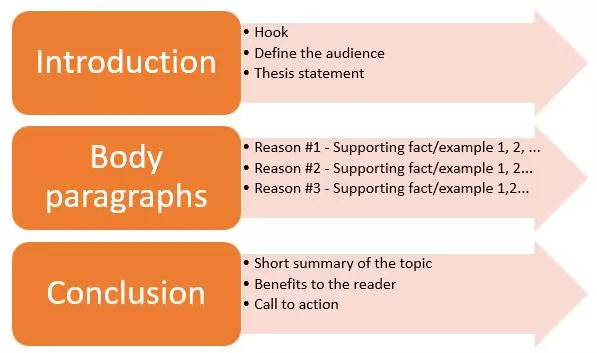
For example, you should begin with the introduction but other content in the body and make your conclusion.
Such carries a standard format of organizing your work in an engaging manner.
Suppose your essay is talking about what history is all about, then you should write what comes up first.
End with what came last to ensure you are achieving proper structure.
d) Be Factual When Substantiating Your Claims
The most common mistake the essayists make is writing what they only believe. The correct format is to substantiate those arguments with facts.
Never leave out empirical evidence because you do not believe in it. Such could make it easy to be undesirable. Also, avoid saturating the points with facts that appear too odd.
The writer should also be keen never to jump to conclusions. Let the author present the point backed by utmost research and weight.
The essay should address what the reader should find interesting. For that matter, make strong arguments for increasing your authority as a writer.
e) Keep Your Essay Relevant
Suppose your essay lacks relevancy, then it may fail to score better marks. An irrelevant essay means that it lacks sense in the common application. You can increase its relevancy by writing hot topics.
When you complete your essay, ensure you proofread it to fine-tune it for any deviations and errors. Become your first judge. Such tactics make you improve your writing as you move on.
You can retain your authority over the topic by sticking with the right facts. At that point, you will make any reader get glued to your piece.
f) Choose Hot Topics
The purpose of writing an essay is to engage the reader. The essay could fail to be interesting if you are writing on a boring old topic. The challenge lies in selecting the hot topic.
The writer should be careful in selecting the right topic. It calls for doing enough research to come up with the right topic of study. When unsure, then you can seek guidance from your faculty to know the correct topic to research and craft the essay about.
Benefits of Double-Spacing in Academic Writing
1. easy to read.
First, leaving extra space between lines improves readability and makes the content easier to absorb and follow. Additionally, double spacing allows for comments and suggestions from professors or fellow students within the text.
Additionally, it enhances the essay’s general appearance, making it more polished and pleasing. Also, double spacing makes it easier to insert adjustments or amendments, facilitating effective editing and proofreading procedures.
2. It Makes an Essay Longer
Double spacing might sometimes give the impression that an essay is longer. The content is dispersed and gets more words by widening the line space. When an assignment has definite duration requirements, this may be useful.
It is vital to remember that lengthening an essay unnecessarily without adding relevant material could hurt the writer’s overall quality and consistency.
3. One can read while underlining
Another advantage of double spacing in essays is that it makes it simple for readers to underline or highlight key passages.
Since there is more area between lines, readers can mark or comment on particular portions, making it simpler to interact with the text and grasp its main ideas.
Also, because the underlined passages act as visual indicators for essential content, this can be very helpful for studying, revisiting, or referring to the essay in the future.
4. Offers space for personal notes
The wider line spacing allows students to make notes or add additional thoughts to their essays in the margins or between the lines.
This provides a handy way to write notes, draw connections, or provide additional context for specific textual passages.
These private notes can improve the overall learning and engagement with the essay by acting as helpful references for discussions, edits, or subsequent study sessions.
5. Easy to Spot mistakes
The increased spacing between lines allows for clearer visibility of individual words, sentences, and punctuation marks. This enhanced readability helps identify typos, grammatical errors, and formatting inconsistencies.
With white space, the eyes can navigate the text more comfortably, enabling a more careful and thorough review.
As a result, double spacing facilitates the proofreading and editing process, leading to a higher chance of catching and correcting mistakes before the final submission.
6. The paper looks professional
In essays, double spacing gives them a more polished appearance. The wider line spacing makes the document’s layout neater and more streamlined.
Also, this formatting decision complies with accepted academic standards and improves the essay’s overall presentation, giving it a polished and expert appearance.
7. Conforms with most referencing styles
Many style guides, such as APA, MLA, and Chicago, recommend double spacing as a standard requirement.
When you adhere to this spacing format, your essay aligns with the guidelines and expectations of these referencing styles, ensuring consistency and conformity in your writing.
8. Promotes clarity of text
In essays, double spacing encourages text clarity. The legibility is improved, and word crowding is prevented by leaving more space between lines.
The reader’s capacity to discern between individual words and sentences is improved by the greater spacing, which lowers the possibility of misunderstanding or misinterpretation.
Effective communication relies heavily on clarity, and double spacing makes the substance of the essay easier to understand.
Watch this video to learn more about this.

Josh Jasen or JJ as we fondly call him, is a senior academic editor at Grade Bees in charge of the writing department. When not managing complex essays and academic writing tasks, Josh is busy advising students on how to pass assignments. In his spare time, he loves playing football or walking with his dog around the park.
Related posts

Tips to Write Faster & Pass Timed Essays
How to Write Essays Faster in Exams: Tips to Pass Timed Essays
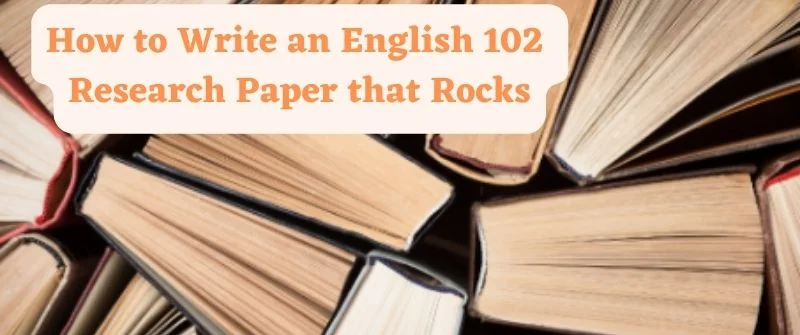
How to Write an English 102 Research Paper that Rocks

writing ancient history essay
Guide how to Write Good Ancient History Essays

IMAGES
VIDEO